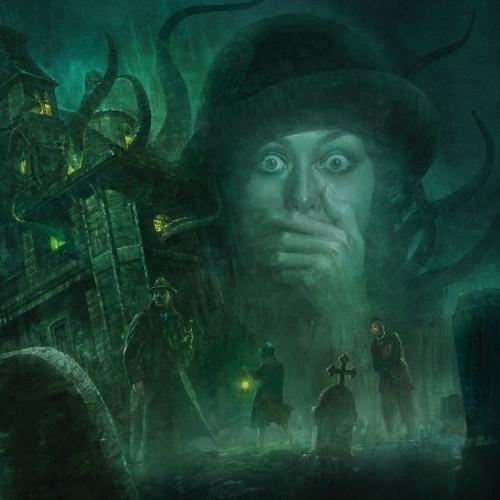Adaptations
Remember Issue #16

Hello, hello! More retro text adventure goodness in your inbox, just like every month! Thank you for your continuous support 🙂
My news
I have started some preliminary work on my next game, but I am not ready to announce anything just yet - I'd like to have everything lined up first! Next month, I promise! 😄
In the meantime, I will be giving a talk on Tristam Island for the Commodore Users Europe group, this Saturday evening! This will be a 20 minute talk at the end of the session, which runs between 730pm and 9pm (Paris time); I will be talking about the game's design and the tools that I've used. Join us! (And for those who can't attend, I will also likely post the Youtube link here next month!)
Community news
I have quite a few things on this list, as usual, but if I've missed something, please let me know! Always keen to learn more about retro text adventure news
- Mickaël Pointier, a pillar of the Oric scene, has been working in the past few weeks on improving the Oric version of The Hobbit, and it's finally available for download! There are quite a few nice audiovisual improvements, and in particular the picture-drawing algorithm has been massively sped up thanks to Mickaël's technical wizardry. This is all very exciting! Mickaël has also been working on another project, to convert the 1984 game Encounter into a graphical text adventure: check out for instance this video!
- The ZEsarUX emulator has a very interesting new feature for Spectrum text adventures: it can now show you a map of the text adventure, complete with pictures and location descriptions! This looks very cool!
- A new PAWS game is in development, "Locked In!", by Simon Allan!
- The Spanish game "El Experimento" was awarded the "Best Text Adventure Game" award by ZX Online!
- Ifwiki.org was recently adopted by the Interactive Fiction Technology Foundation (of which I am a board member), and also had a little bit of a facelift, making it more inviting and better for mobile. But there is also an influx of great contributions! Jonathan (who was very involved in the adoption of ifwiki) is a heavy contributor, but I also want to note the contributions of Strident, for instance on the Quill page. Thank you to all contributors to this great resource!
- And to conclude on a somewhat down note, it was recently announced that Andy Remic, a British author and filmmaker who was the author of a number of text adventures in the late 80s / early 90s, has passed on February 26th. My condolences to his family.
This month's article
The article for this month looks into adaptations of books or movies in text adventures! This is a question that comes up rather frequently among new authors of interactive fiction; I used this as an opportunity to dive back into 1980s and 1990s text adventures, and attempt to provide a general overview with interesting resources, and touch on why this is a fundamentally difficult problem. I hope you enjoy it!
See you soon!
Let me know if you've liked this month's article, if you'd like me to share some news I might not be aware of, or if you just want to chat about retro text adventures! See you next month 😉
Issue #16 : Adaptations
Books are adapted into movies. Movies are adapted into video games. Video games are adapted into books. Movies are adapted into books. And, sometimes, books and movies are adapted into text adventures!
(But no, to the best of my knowledge, there hasn’t been a text adventure adapted into a movie just yet, unfortunately. Who knows, maybe one day! And as a matter of fact, there are text adventures that were adapted into books: Infocom released about half a dozen of them! If you don’t know about them yet, find out more at: https://www.mocagh.org/loadpage.php?getcompany=infocombook&npp=25&start=0&series=All )
Today’s topic is movies and books adapted into text adventures. There are quite a few! CASA, for instance, has over 300 games in the “based on literature” category:
http://solutionarchive.com/list/orderby%2Cyear/orderdir%2CASC/p%2C2/tag%2C1/
Given this, it is impossible to be exhaustive. I will just start by highlighting a few games, and more importantly companies that have tried their hands at this kind of adaptation; then, we’ll look at a question that as a game creator is very interesting to me: how do you adapt a linear story into a text adventure, and what has been attempted?
Adaptations into text adventures – a crash course
It seems that, very early on in the history of text adventures, creators took inspiration from books for their text adventure. We can mention three games in particular. The first one, Journey to the Center of the Earth (1978) by Greg Hassett, is inspired by the Jules Verne book but is not, by any means, a faithful adaptation: Graham Nelson recounts in his seminal Designer's Manual 4 that this game contains "a coke machine, a troll's palace, and a car repair shop". The second one, Aldebaran III, is a Peter Langston game for his "Wander" system, a science-fiction game where you are intergalactic diplomat Jame Retief (seemingly the first time you are anything but "yourself"). It is inspired by the series of stories by Keith Laumer, but the plot seems wholly original. The third game we should mention is Lord, a mainframe game at Helsinki written by Olli J. Paavola; the game is not quite a straightforward adaptation of Lord of the Rings, as it mixes elements from The Hobbit and others, but everyone agrees it was written by someone with a love for the books and who took care to include material straight from the books, such as the ballads. Interestingly, this game was thought to be lost, however it was preserved a few years ago by its author and can now be played in a museum in Finland! See details here:
https://bluerenga.blog/2017/03/08/one-of-the-lost-mainframe-games-found/
There are a few more adaptations by amateurs, such as an early adaptation of The Hitchhiker's Guide to Galaxy, as well as commercial games such as Melbourne House's The Hobbit. However, this is nothing compared to the 1984-1986 fad that saw an explosion in the number of adaptations of books into text adventures. It seems that this wave occured in the United States and (a bit less) in the United Kindgdom, and most of these adaptations were licensed and tried to stay close to the original plot (as opposed to games inspired by the setting). Not all of them were successful or good games, and they mostly could not resolve the core issue when adapting a book/movie into a text adventure, which we'll discuss in the next section. Rather than list these books, I will point you to Jimmy Maher's lovely article on bookware, which discusses these:
https://www.filfre.net/2013/09/bookware/
Jimmy Maher actually has a number of articles on c.1985 games inspired by literature, with in-depth articles on the Trillium/Telarium and Windham Classics games. This dozen of games, published by Spinnaker, consisted in literary adaptations working closely with the authors; for instance, Ray Bradbury wrote a new ending for the Fahrenheit 451 game. Overall these articles are really great (as always) if you want an in-depth dive into these games, including discussions on what works and what doesn't.
https://www.filfre.net/tag/telarium/
There are a few more companies that weren't covered in Maher's articles but still probably deserve a mention; for instance, Angelsoft Inc wrote half a dozen of text adventure adaptations, including, intriguingly, some 007 and Rambo ones. These appear to be licensed adaptations, which potentially makes these the first official text adventure adaptations of movies!
https://www.mobygames.com/browse/games/angelsoft-inc/
In the late 80s/early 90s, Infocom famously tried their hand at text adventures inspired by books, which included Arthur, Shogun, and Sherlock: The Riddle of the Crown Jewels, written by Bob Bates. Bates then went on to co-create Legend Entertainment, who created a few more parser-based book adaptations, such as Frederic Pohl's Gateway. Again, Jimmy Maher has the details:
The list above appears to be US-centric, but honestly, I could not find that many adaptations coming from the UK. One exception to the rule seems to be the graphical adventures from Mosaic Software, a list of which can be found on CASA:
http://solutionarchive.com/list/company%2C106/
And of course, if you are so inclined, you could include humorous/parody games such as The Boggit, Bored of the Rings, or Malice in Blunderland!
To close this section, I also wanted to do a little bit of research on French text adventures, as always. (I also found a few text adventures in Spanish and German on CASA, if you are interested let me know!) Intuitively, one might think that France, which historically is a country that reads a lot of books and has plenty of classic authors, would have lots of books adapted into text adventures. Nothing could be further from the truth! In fact, I only know of one: Han d’Islande, a graphical adventure adaptation of an early Victor Hugo novel. (That’s right: Jules Verne, probably the French author that epitomizes adventure the most, with Around the World in 80 Days, 20 000 Leagues Under The Sea, etc., was never adapted into a French text adventure – but English speakers, and even German speakers, did such adaptations!). The reason is actually fairly simple: young people who made video games in France in the 1980s were mostly inspired by French comic books; it is, I believe, one of the main reasons why virtually all the French text adventures were actually graphical adventures. To the best of my knowledge, there were two comic book adaptations (Moulinsart, an unauthorized game in the world of Tintin; and Alésia, heavily inspired by Astérix), as well as 1983’s I.L. L’intrus, a graphical text adventure heavily inspired by Alien.
What makes a good adaptation?
This is a great question, and one for which there doesn’t seem to be a definite answer, although many have tried! But first, it is important to notice that there are several approaches to making an adaptation of a literary text into a text adventure.
The first approach is to use the source material as a backdrop for your game. You can reuse the setting, the characters, throw in a few quotes or a few important moments, but other than that, you are free to insert whichever puzzles you want, or alternate endings, etc. This makes for a very flexible framework when writing the game, and you can fully focus on making the game portion feel satisfying to play; hundreds of games have been written this way, from “fan games” to officially-licensed offerings. But on the other hand, is it really an adaptation of a book if you don’t follow the plot of the book?
Which then leads to the second approach, which is much trickier: make a game whose plotline follows the story. This approach has been followed numerous times, but I can’t think of a truly successful example in text adventures. The standard seems a bit different for other genres of video games: throw a few cutscenes recreating important moments of the book/movie in between levels of an action/platformer game, and people will not complain about the fact that there weren’t so many platforms in the movie. However, for text adventures, there seems to be an expectation that the story should be woven more in the game, within the gameplay – probably because people who play text adventures are avid readers, and want to immerse themselves into a world, and usually follow some kind of plot, much like in books. But the usual problem is that in text adventures, you usually move the plot along by solving puzzles; but if you already know the plot, there’s the possibility that the puzzles that are added to the game will look like hindrances that are “pausing the book” and preventing you from continuing to read. Having the puzzles matching the plot or the events of the book also seems to be a bad idea: if you’ve read the book, the action to perform will be easy to find; if you haven’t, you will get stuck and will think the solution is coming from left field. And finally, text adventures are very much about exploring and thinking; action sequences and dialogue scenes are usually difficult to recreate in a parser-based game. All of these reasons work against you when trying to create a faithful adaptation of a book in text adventure form, which would explain why not many have been that satisfying!
However, despite these issues, it doesn’t mean people have stopped trying! A recent attempt at this was Sherlock Indomitable, by Brian Rushton, which is a very interesting game – although the author himself will admit the problems mentioned above still manage to show up in this adaptation. The game is still worth playing, though! And the author that experience to write a very interesting essay on the difficulties of faithfully adapting books, which you can read here:
https://intfiction.org/t/an-essay-on-adapting-books-stories-into-parser-games/13012
Let me close today’s article by recommending another recent game, which takes the approach of using the Sherlock Holmes setting as a backdrop for a very fun game: Toby’s Nose, by Chandler Groover!



























